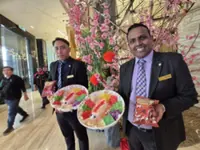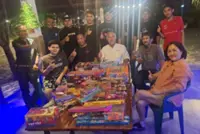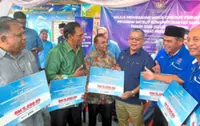When author Dr Lee Su Kim was a young girl, she sometimes wondered why her Cantonese, that she picked up from her Amah, sounded so different from the Cantonese that her friends spoke. Another mystery was why she tanned so much faster than them in the sun – so much so that her father called her “Hitam Manis” (an affectionate nickname for those of darker complexion).
As she grew up, Lee learnt all this was due to her Peranakan heritage; her father was a baba from Melaka, while her mother was a nonya from Penang. Her heritage is something Lee is now fiercely proud of: she has been active in cultural activism over the last 10 years, and was the founding president of the Peranakan Baba Nyonya Association of Kuala Lumpur & Selangor.





